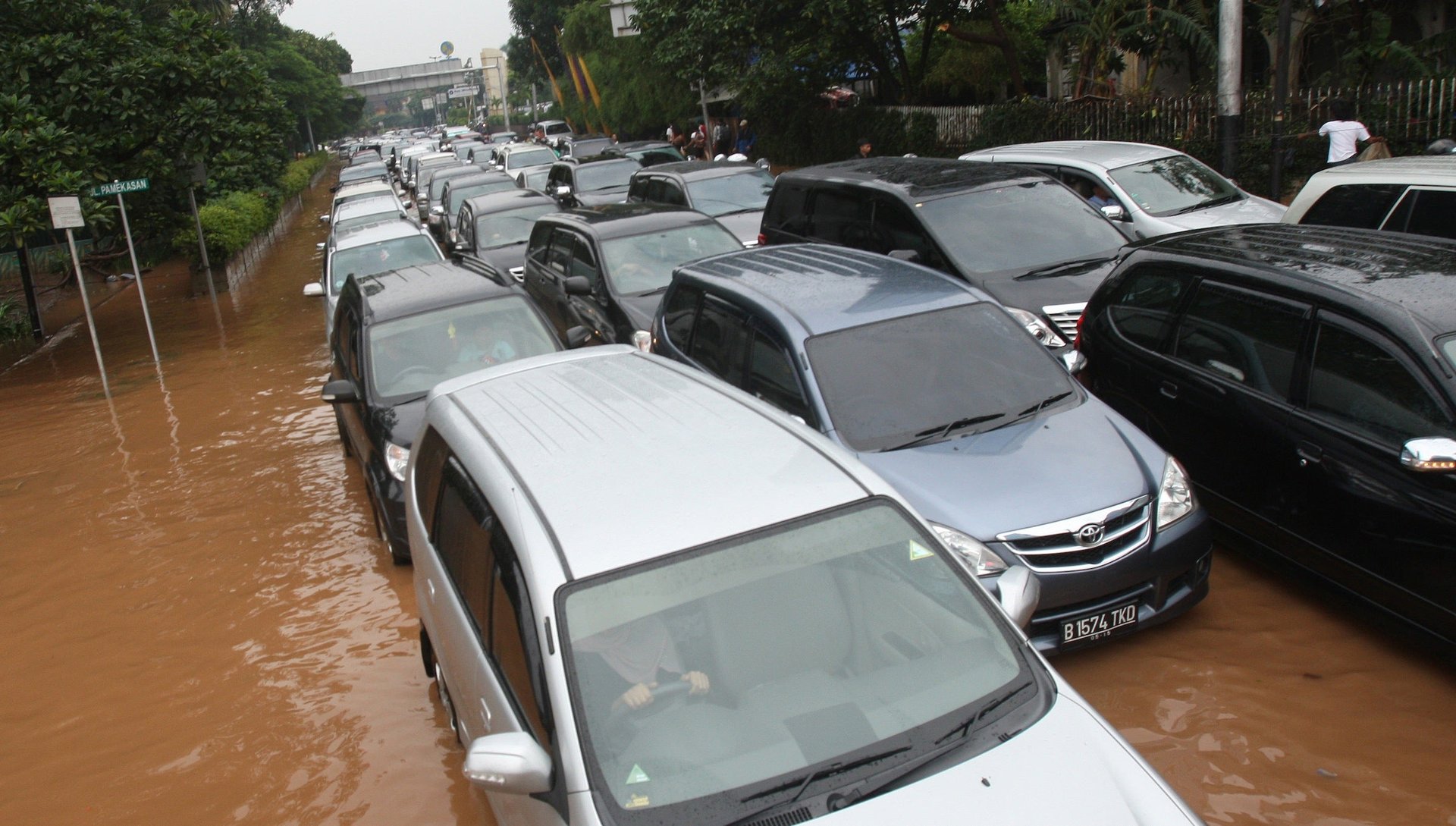Indonesia is booming, meaning more of its people will spend hours a day suffering gridlocked traffic
Indonesia’s much-hyped economic boom is making people’s quality of life, in some aspects, significantly worse. The reason? Shoddy infrastructure, which causes gridlocked traffic and is caused by bureaucratic paralysis and corruption.


Indonesia’s much-hyped economic boom is making people’s quality of life, in some aspects, significantly worse. The reason? Shoddy infrastructure, which causes gridlocked traffic and is caused by bureaucratic paralysis and corruption.
That is encapsulated perfectly in this Bloomberg story, which features a man living in the newly thriving city of Pekanbaru on the island of Sumatra. It used to take him 20 minutes to drive to work. Now more people have money in Pekanbaru, the roads are jammed with cars and the journey takes him two hours.
And the gridlock is going to worsen as the China-driven commodities and consumer spending boom continues. Car sales in the nation rose 18% in the first quarter from a year earlier. But the nation is doing little to alleviate pressure on the highways, which are often potholed and flood damaged, making it only possible to drive at a crawl.
This is one reason air travel is booming. The rail system, meanwhile, is in a shoddy state. Even the capital city, Jakarta, lacks any form of subway or overland mass transit light rail system. And city officials have been working on plans for such a system for 26 years (it is claimed 2013 is the year it may really get going.)
Jakarta has also not upgraded the flood defenses on its roads since the Dutch colonists left Indonesia in 1948.
One problem is the mismatch between the amount of money the Indonesian government ostensibly spends on road improvements and the state of the roads. In this February paper, the World Bank mused: “spending on national roads has increased by three fold between 2005 and 2011, but has only led to a 20% output increase in terms of roads preserved and developed.”
This means significant chunks of the road spend is being wasted or stolen, with officials and contractors likely sharing cash skimmed from budgets between themselves.
Indonesia’s Monitoring Committee for Regional Autonomy Implementation said in a report last year that Indonesia’s road quality was actually decreasing while road budgets increased. The committee concluded the real cost of new projects was being inflated by officials and contractors, with poorer quality building materials being used than appeared in budgets.
Bad roads also stymy domestic investment and hamper job creation, which is sorely needed. Even though Indonesia’s GDP is booming, many people still scrape a living together driving motorbike taxis or collecting rubbish (paywall). Last September, Indonesian Employers Association chairman Sofjan Wanandi told Indonesia’s Kompas newspaper bad transport logistics meant “many entrepreneurs have chosen to import goods, rather than to produce domestically.”
Indonesia has presidential elections next year, but the country’s corruption-hobbled political system may not get cleaner. Likely candidates include Aburizal Bakrie (plagued by allegations of tax evasion, which he has consistently denied) and Megawati Soekarnoputri, a former president who was viewed as ineffective at fighting graft. The country’s great hope might be Jakarta governor Joko Widodo, who is seen as committed to reducing social inequality and fighting corruption. If he makes it to president, one has to hope that he will start out by fixing the roads.